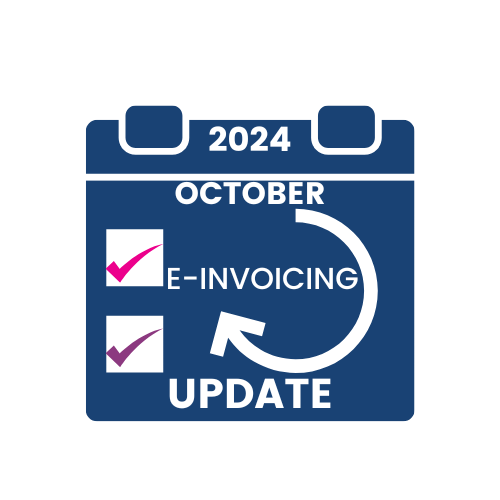Italy
Updated tax penalty regime in Italy from 1 September 2024. The new decree revising the tax sanction system aims to harmonize with other EU countries and provide more proportional sanctions to tax violations in the country. Following this adjustment of the legislation, some penalties have been reduced while others have been introduced for specific scenarios.
India
India considers e-invoicing for the B2C sector. GST Council recommends rolling out a pilot for B2C e-invoicing, highlighting the probable benefits in retail, such as increased efficiency for businesses, cost-effectiveness and eco-friendliness. The Council’s recommendation is based on the positive results of the previous B2B e-invoicing implementation.
New invoice Accept or Reject features of IMS system now available for taxpayers. The new IMS system with this feature aims to improve accuracy, transparency, and efficiency in managing GST invoices, reducing mismatches, and ensuring compliance without burdening taxpayers.
Ghana
Ghana proceeds with the second phase of the Electronic VAT Invoicing System. The Ghana Revenue Authority (GRA) is onboarding an additional 2000 VAT-registered taxpayers to the Electronic VAT Invoicing System as a part of the second phase. Onboarded taxpayers will have to issue electronic VAT invoices. The new E-VAT system will help the GRA monitor real-time VAT transactions.
UK
UK government unveils plans to introduce countrywide e-invoicing. This new reform is part of the broader Digital Transformation Roadmap, with full implementation expected in 2025. The goal is to simplify financial processes for businesses and improve tax compliance across the country.
Democratic Republic of the Congo
On 5 September 2024, the Congolese Ministry of Finance announced that piloting would begin for their mandatory e-invoicing and fiscalization device initiative. The pilot phase, which commenced on 15 September, will apply to taxpayers chosen by the Congolese Tax Authority fitting specific criteria they have established. The selection criteria for participants in the pilot is likely to include organizations within the groups classified by the Directorate of Large Enterprises (DGE) and the Tax Centre for Medium-Sized Enterprises (CDI).
Thailand
Thailand extends reduced standard VAT rate until 30 September 2025. The reasons for the continued reduction of the VAT rate are to relieve the tax burden on businesses and consumers and to ensure the Thai economy’s targeted expansion.
Latvia
Latvia is progressing towards countrywide electronic invoicing, reconfirming the timelines for both public and private sectors. On 24 September, the Ministry of Finance (MoF) announced the Cabinet of Ministers’ (MK) support to mandate e-invoicing after their evaluation meeting, following the public consultation on the draft amendments of the Accounting Law published earlier this year.
Estonia
Estonia expands e-invoicing rules from July 2025. Starting from 1 July 2025, the Estonian Government enforces changes to extend the adoption of e-invoicing in the private sector by simplifying e-invoicing recipient registration for entrepreneurs.
Egypt
Selected foreign businesses in Egypt will integrate with ETA portal for real-time validations. On 22 June 2023, the Ministery of Finance Decree No. 160 of 2023 came into effect, introducing VAT (Value-Added Tax) on non-resident digital and remote services. The decree affects non-resident (foreign) operators of electronic distribution platforms (EDPs) that offer remote services to Egyptian residents. Rendering a remote service now entails an obligation for VAT to be paid in Egypt.
Germany
Release of a new ZUGFeRD format version. A new version of the hybrid e-invoice format ZUGFeRD has been released. With the release of version 2.3, users of the EXTENDED profile are highly advised to update to the new version. It is important that users of ZUGFeRD EXTENDED update to the new version, as rounding inaccuracies are now permitted, which has not been allowed in previous versions. The new ZUGFeRD version can be downloaded here.
Serbia
Serbia is planning to start mandating e-delivery notes. This draft law regulates the sending, receiving, processing, acceptance, rejection and presentation of electronic goods delivery notes between public and private sector entities for B2B and B2G transactions.
Saudi Arabia
ZATCA releases requirements for the sixteenth wave of taxpayers. Taxpayers in scope must comply with the Saudi Integration Phase of the e-invoicing obligation by 30 June 2025.
Poland
Final KSeF consultation to take place at the turn of October and November 2024. The Polish Ministry of Finance announced the final consultation on the Polish national e-invoicing system (KSeF) would begin in a month.
Malaysia
IRBM published the latest updates of e-invoice guidelines. By announcing the latest versions of the e-invoice Guideline and the e-invoice Specific Guideline, the Malaysian Inland Revenue Board updated the scope of taxpayers exempted from the e-invoicing mandate. The previous version of this list included state, government, local and statutory authorities, as well as certain organizations related to government bodies, which are now under the scope of the e-invoicing mandate.
Sweden
SFTI continues to phase out standards in favor of Peppol BIS. The EDIFACT-based standard SFTI ESAP 6 will be discontinued from Sweden’s Single Face to Industry’s (SFTI) list of recommendations concerning purchase orders when engaging with the public sector from 1 July 2025.




